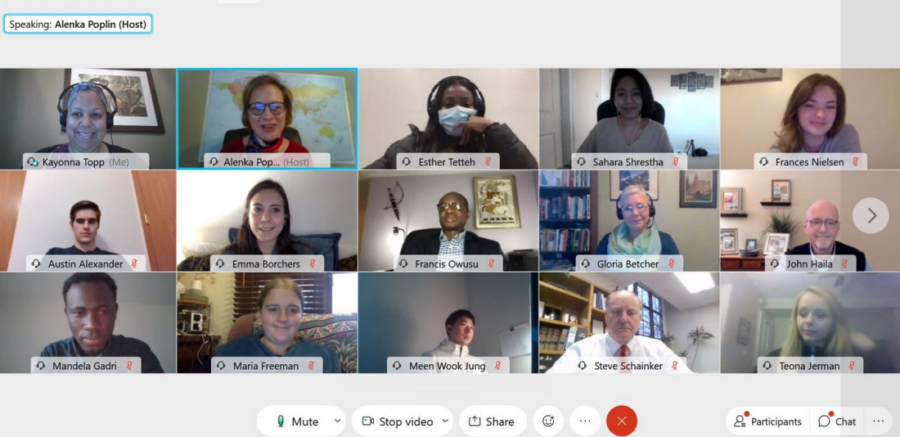ISCORE addresses underrepresented communities and means of effective communications
The final presentation of their semester-long study took place Nov. 23. In attendance was Ames Mayor John Haila, Ames City Manager Steve Schainker, Ames Councilor Gloria Betcher, professor Francis Owusu alongside students of CRP 432/532.
March 5, 2021
During the 21st annual Iowa State Conference on Race and Ethnicity (ISCORE), one series of the workshop included an educational series on how the city of Ames can engage racial and ethnic minorities in community conversations about the future.
The discussion was led by master of community and regional planning (CRP) graduate students Kayonna Topp, Sahara Shrestha and Esther Tetteh. Their research took place in assistance with the city of Ames. When city officials sought to improve their engagement with underrepresented groups, specifically racial and ethnic minorities within the community, a collaborative effort was set forth to identify why there was a low response rate in certain developments and what could be done to prompt higher rates of communication.
Alenka Poplin, an assistant professor for community and regional planning and mentor from Iowa State, worked alongside her CRP 432/532 students to compile and complete the research for the benefit of the city of Ames.
“It’s about building a relationship with the community and then also empowering the community to feel stronger and [be] able to change what they need to in their neighborhoods, in their environment,” Poplin said.
The goals of their study were to first identify the underrepresented residents in the Ames community and then to find a variety of resident-inspired engagement methods that would work to actually increase the participation of these groups.
“Cultural recognition is very important,” Tetteh said. “It’s important that when you are reaching out to underrepresented communities, you need to do research, know the culture, like what are some of the things that they would prefer.”
If residents are not coming to city officials, they must identify why there is no feedback from that section of the population. For some, it’s simply the mentality of “not in my backyard,” but more so, many of the community members do not have equal access or even an understanding of what the outreach is asking for, which is a barrier and why it’s crucial for there to be a blend of engagement methods to improve communication with particular areas.
“You need to build partnerships with the community organizations to reach out to the members of the community,” Topp said. “You want to gain trust with these communities and [go] out to reach them, you want to provide knowledge of the opportunities they have for engagement.”
Their study used a mix of methods to identify reasons why people do not participate and how to improve citizen engagement in Ames. The findings show that it is imperative to build trust, meeting the residents where they are in their communities and making the process fun and more interactive.
Some of the processes included the use of online resources like Photovoice, a digital platform that uses video and photo images to capture aspects of their environment and experiences and share them, as well as social media. Offline engagement methods include focus groups, pop-up events, workshops as well as game-based workshops to be more playful and interactive.
Community members ultimately want to know when they do reach out to their community leaders that they will receive a response so they feel acknowledged and respected. Poplin’s graduate study course has provided their findings to the city of Ames so we as a community can grow together and be inclusive of all members, including the underrepresented.

















